Alphabetizing Worksheets for Ages 4-6
5 filtered results
-
From - To
Welcome to our engaging "Alphabetizing Worksheets for Ages 4-6"! Designed for young learners, these worksheets emphasize the importance of alphabetizing skills in a fun and interactive manner. Activities include sorting, arranging letters, and identifying order using familiar words and pictures. These worksheets not only help children learn the alphabet but also enhance their literacy and organizational skills. Perfect for preschool and kindergarten educators, our resources encourage independent learning while reinforcing essential foundational skills. Dive into a world of letters and foster a love for reading and writing with our delightful alphabetizing activities tailored specifically for little ones!
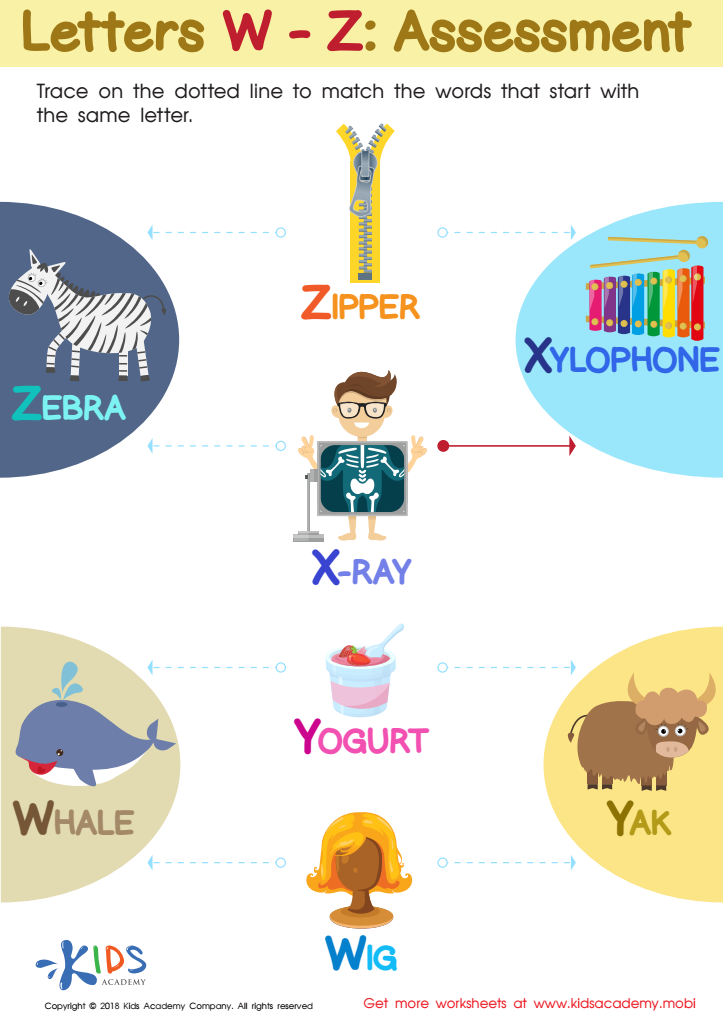

Letters W–Z Tracing Worksheet
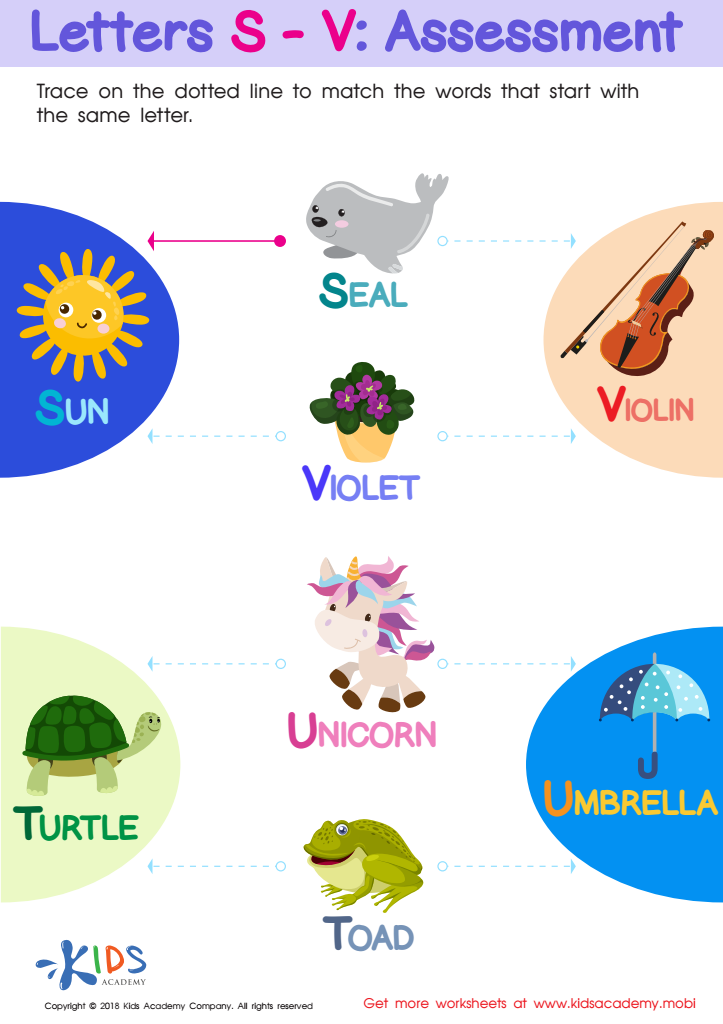

Letters S - V Tracing Worksheet
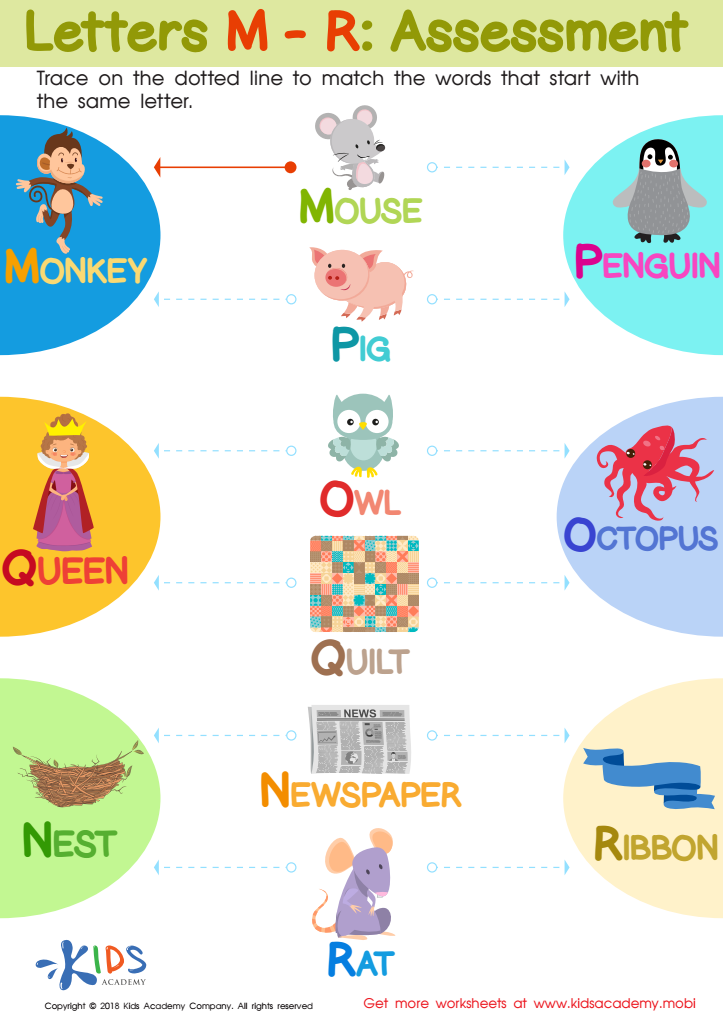

Letters M-R Tracing Worksheet
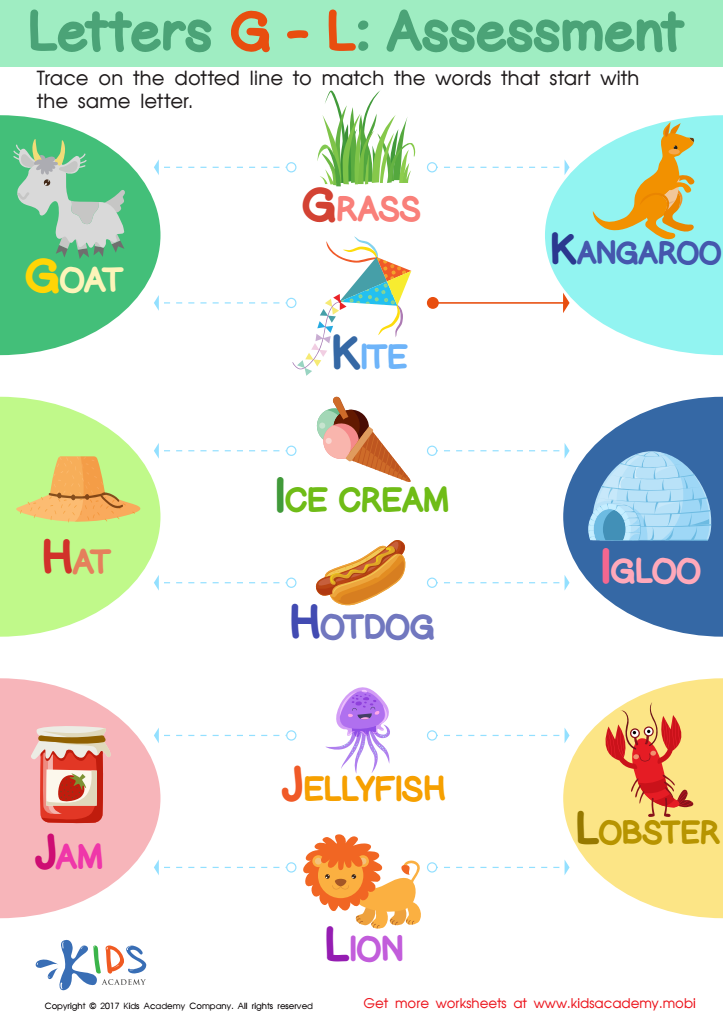

Letters G-L Worksheet
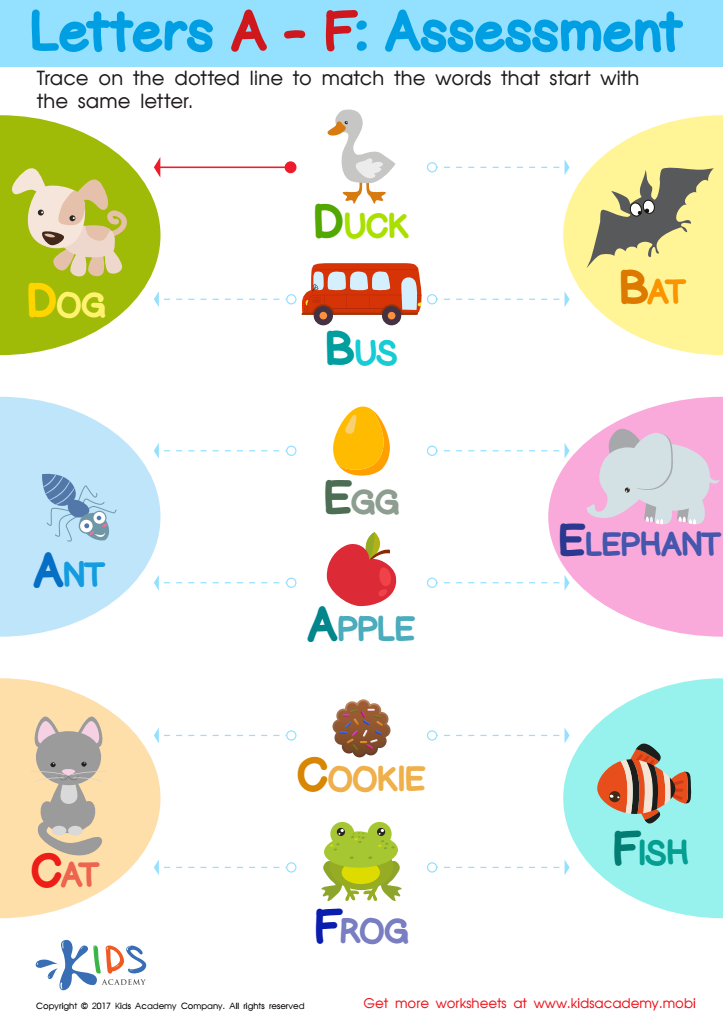

Letters A - F Worksheet
Alphabetizing is an essential skill for children aged 4-6 as it lays the foundation for literacy and organizational skills. By introducing young learners to the concept of alphabetizing, parents and teachers support their development in several crucial areas.
Firstly, learning the alphabetic order enhances children's phonemic awareness, aiding them in recognizing letters and sounds. This recognition is vital for early reading and spelling skills. Additionally, as children begin to recognize the relationship between letters and sounds, they improve their ability to write their names and simple words.
Furthermore, an understanding of alphabetical order fosters problem-solving and critical thinking abilities. When children learn to organize their thoughts and information systematically, they gain confidence in their cognitive skills. Alphabetizing helps them in navigating tools like dictionaries, encyclopedias, and digital platforms later in their education.
Lastly, incorporating alphabetizing into daily activities keeps learning engaging. Whether it’s sorting toys, naming animals, or categorizing books, children can grasp this concept in a fun, playful context. Overall, prioritizing alphabetical skills in the early years equips children with important foundational skills necessary for academic success and daily life.
 Assign to My Students
Assign to My Students








